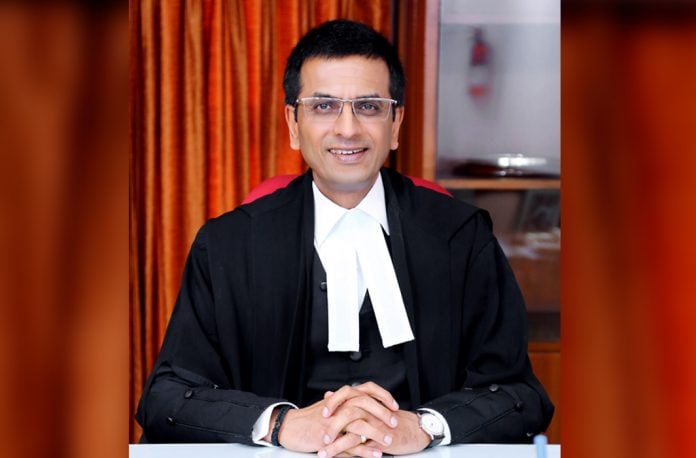Chief Justice of India D.Y. Chandrachud on Friday denounced an email sent by an advocate, which stated that the Supreme Court should take up ordinary cases on a priority basis, instead of hearing Constitutional Bench cases.
Referring to the email sent by Advocate Mathews J. Nedumpara, in which he referred to the Constitution Bench matters as ‘useless,’ the CJI said that it seemed the lawyer was in ignorance of the Constitution Bench matters, noting that these cases often involved the interpretation of the Constitution, which formed the foundation of the legal framework in India.
As per the CJI, the lawyer may think that the petitions challenging the abrogation of Article 370 may not be relevant, however, this was not how the government or the petitioners in that case felt.
He further said that the Constitution Bench matters went beyond the constitutional interpretations, citing an example of a recent case concerning the livelihood of drivers across the country.
He added that such cases have a profound impact on the social sector and the livelihoods of numerous individuals
The exchange took place during the hearing of a matter taken up by the Bench of CJI Chandrachud, Justice J.B. Pardiwala and Justice Manoj Misra, in which Advocate Nedumpara made an appearance.
After the hearing was over and the lawyer was about to leave, the CJI called him and said that his (CJI’s) Secretary General had placed an email by Nedumapara, which stated that the Supreme Court should not be hearing the Constitution Bench matters because these were useless matters and the Apex Court should be hearing non-Constitution bench matters.
The advocate asserted that the Supreme Court should hear cases concerning the common man.
The CJI then referred to the case related to the Light Motor Vehicle Driving License issue, which was considered by a Constitution Bench on September 13.
The Constitution Bench had considered the issue of whether a person holding a driving licence in respect of a light motor vehicle could, on the strength of that licence, be entitled to drive a transport vehicle of light motor vehicle class, having unladen weight not exceeding 7500 kg.
The Constitution Bench, while deferring hearing on the issue, had urged the Union Government to consider if the matter could be resolved through amendments to the Motor Vehicles Act 1988 and policy changes.
The CJI then told Nedumpara that all Constitution Bench matters were not necessarily interpretations of the Constitution.
He told the lawyer to disabuse his mind that the Supreme Court was ‘only’ dealing with some ‘fancy’ Constitution Bench matters, which had no bearing on the lives of ordinary people.
He further said that in the light motor vehicle case, the Apex Court had passed a very detailed order asking the Attorney General to take instructions, saying that this would have a very big impact on the social sector.
He asserted that the livelihood of a large number of small drivers would be affected.
However, the advocate said that he was not against the court hearing matters involving the fundamental rights of people, but only against this court hearing matters of public interest behind the back of people.
He said he was against a matter being heard on public policy without hearing the public at large. The advocate further said that when a Supreme Court Judge passed an order, he as a common man, was not present in the courtroom.
The CJI then referred to the Article 370 matter, saying that groups of individual interveners had come to this court and addressed the Constitution Bench from the valley. The CJI added that the Supreme Court was indeed hearing the voice of the nation.
On September 5, after hearing the case related to abrogation of Article 370 extensively for 16 days, the Apex Court had reserved its verdict.


